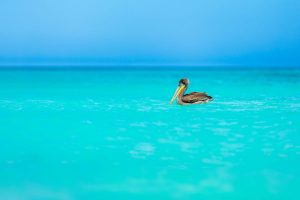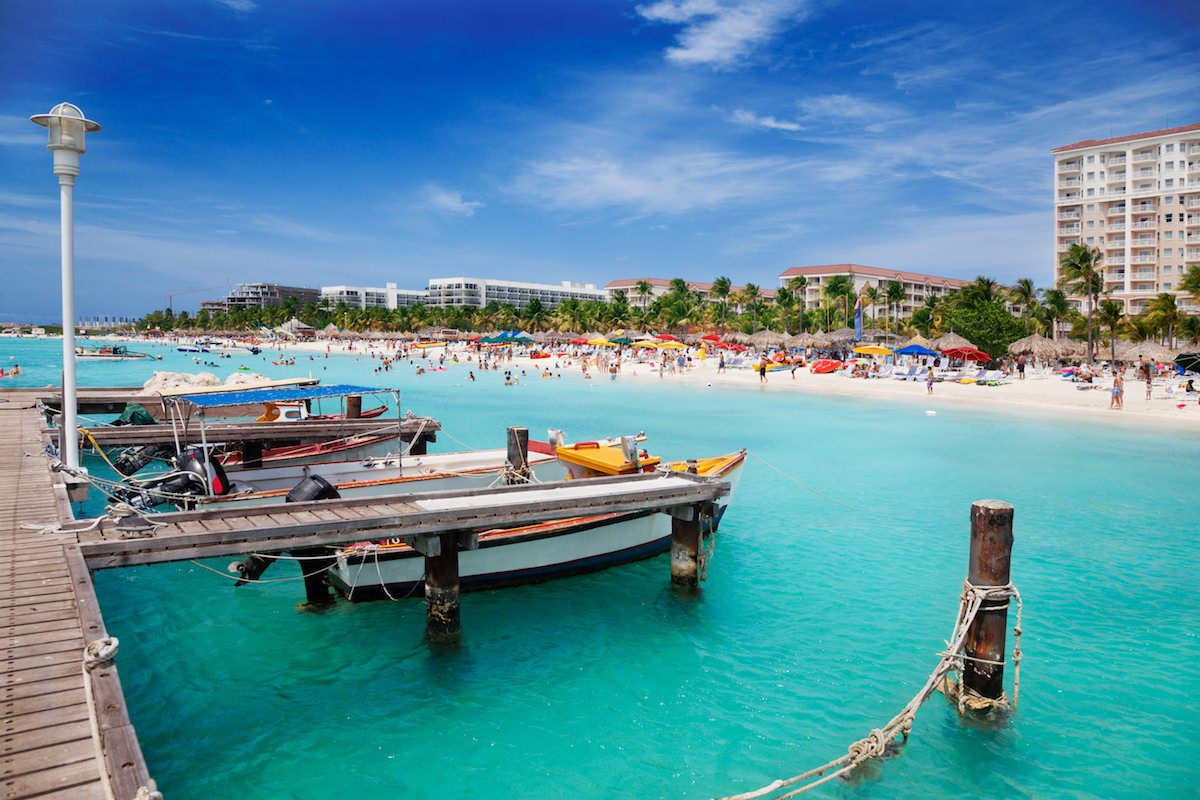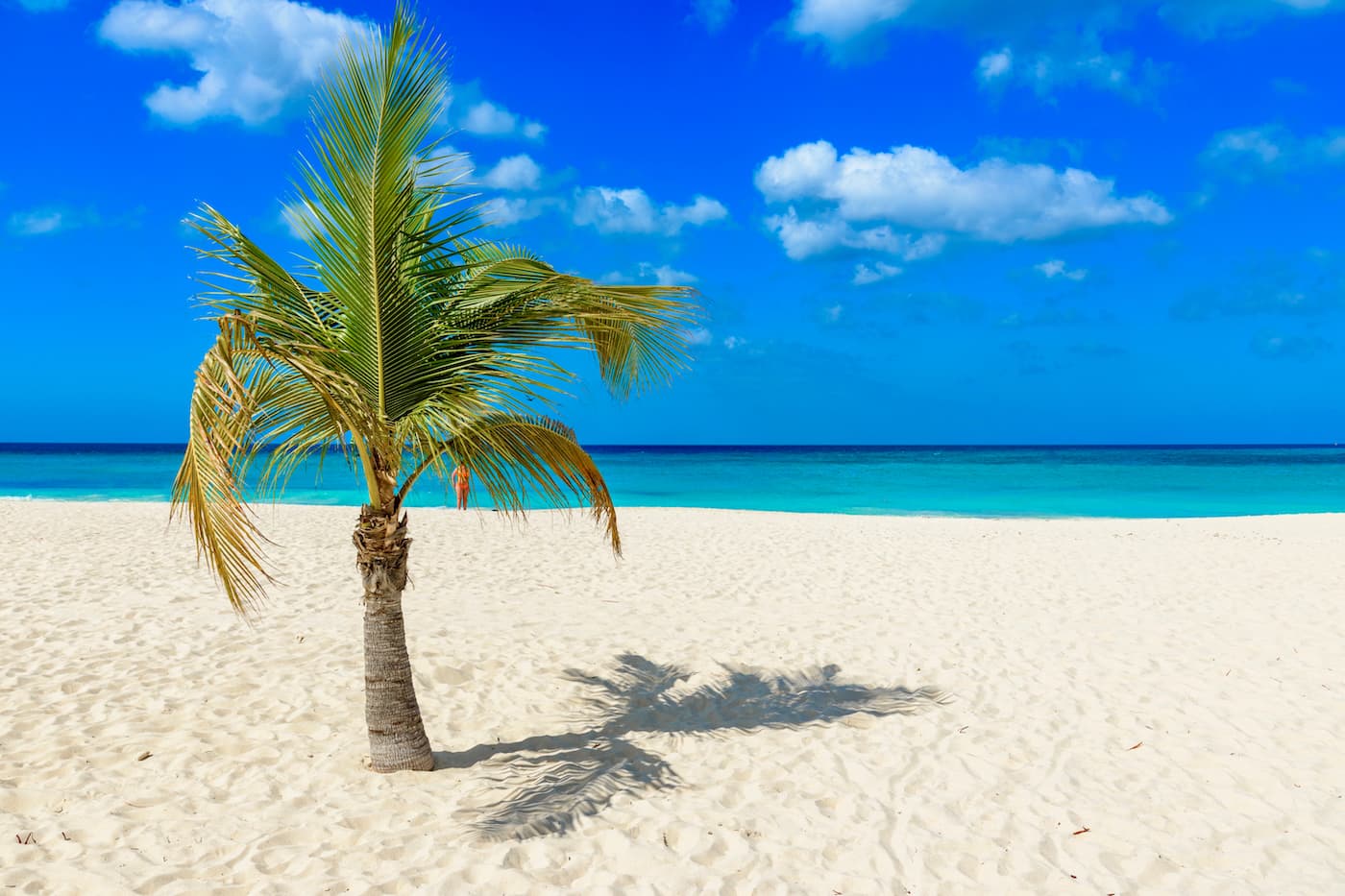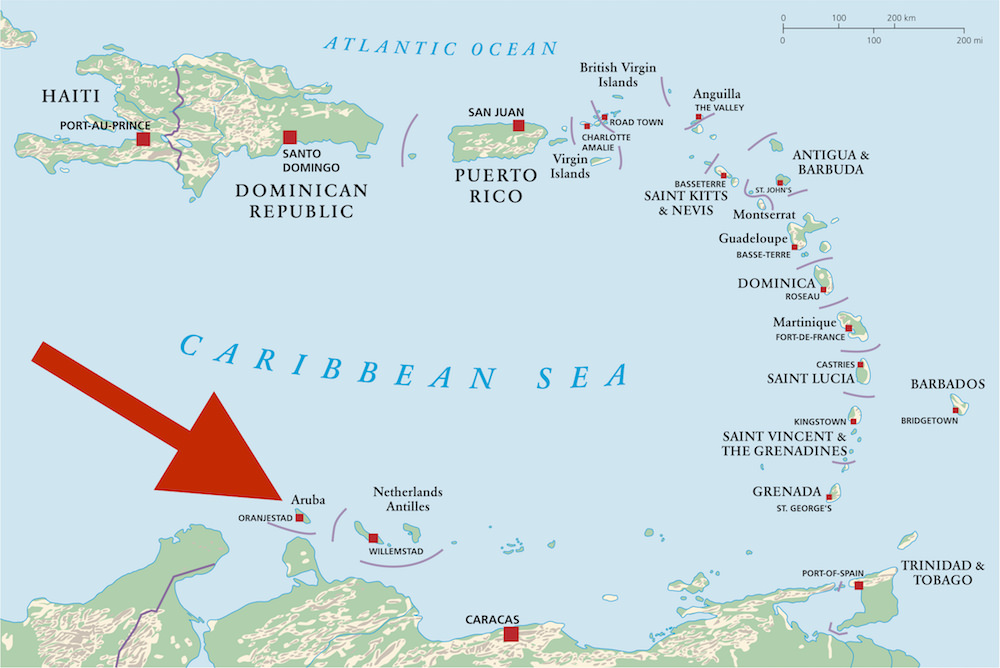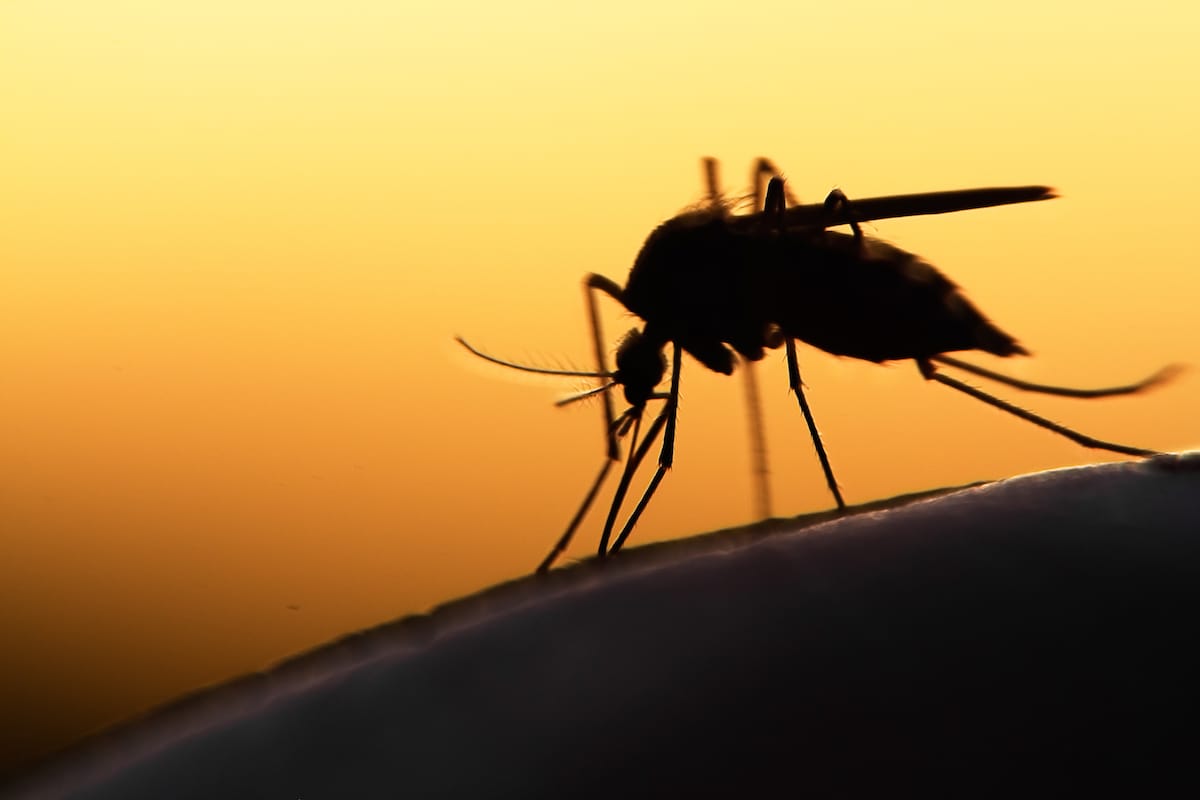
Aruba is generally considered to have a low mosquito population compared to many other tropical destinations.
The island’s arid climate and constant trade winds help mitigate mosquitoes’ presence. However, it is essential to note that mosquitoes can still be found in some areas, particularly during periods of higher rainfall or in localized pockets where water may accumulate.
While the mosquito population in Aruba is relatively low, it is still advisable to take precautions to protect yourself from mosquito bites.
Places where Mosquitos Lay Eggs
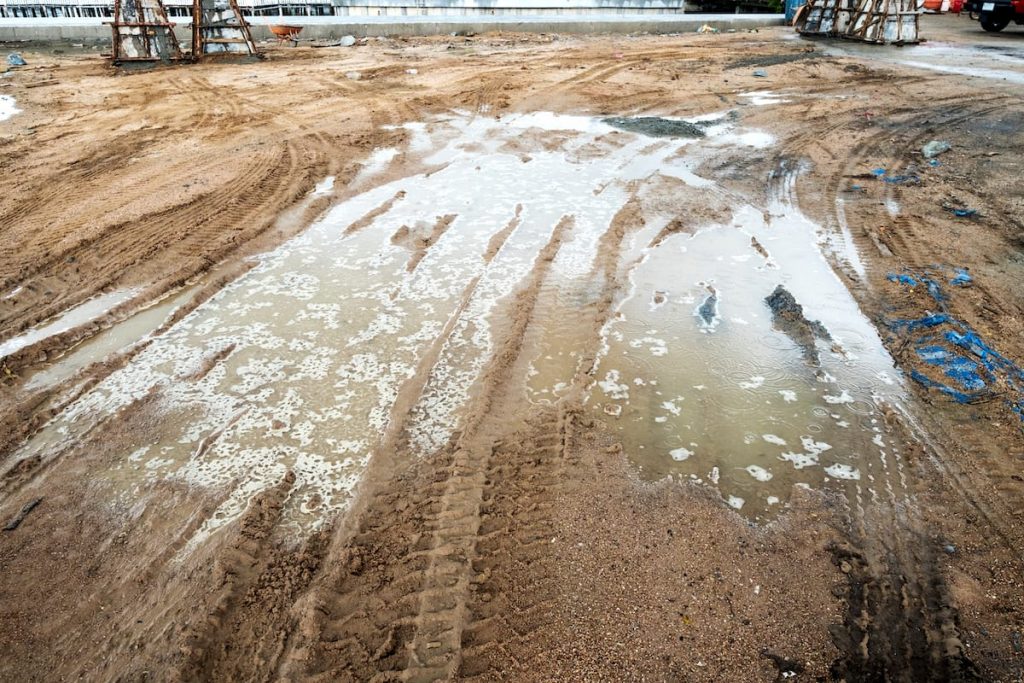
Aruba’s mosquitos typically lay their eggs in stagnant water sources. Female mosquitoes require water to lay their eggs, and they seek out standing water to complete their reproductive cycle. Some common places where Aruba’s mosquitos may lay their eggs include:
- Puddles and Pools: Mosquitos can lay eggs in small, temporary pools of water, such as rainwater collected in natural depressions or artificial containers.
- Flower Pots and Plant Saucers: Plant containers, especially those with saucers or trays that collect water, can become breeding grounds for mosquitos if water is allowed to accumulate.
- Gutters and Drains: Clogged gutters or drains that hold water can provide a suitable environment for mosquito egg-laying.
- Old Tires: Discarded tires, if not properly stored or disposed of, can collect rainwater and become breeding sites for mosquitos.
- Ditches and Ponds: Natural or man-made ditches, as well as stagnant ponds or marshy areas, can be potential mosquito breeding grounds.
- Bird Baths and Pet Water Bowls: If not regularly cleaned and refreshed, standing water in bird baths, pet water bowls, or outdoor containers can attract mosquitos for egg-laying.
- Construction Sites: Construction areas with exposed materials that collect rainwater, such as buckets, tarps, or unfinished structures, can provide suitable sites for mosquito breeding.
Prevention
- Use Mosquito Repellent: Apply mosquito repellent with an effective active ingredient, such as DEET or picaridin, to exposed skin. Follow the instructions on the product label for application.
- Wear Protective Clothing: Cover exposed skin by wearing long-sleeved shirts, long pants, and socks when appropriate, especially during dawn and dusk when mosquitoes are most active.
- Stay in Screened Areas: If you are staying in accommodation with windows and doors that can be opened, ensure they are equipped with screens to keep mosquitoes out.
- Avoid Stagnant Water: Mosquitoes breed in stagnant water, so try to avoid areas where water accumulates, such as ponds, swamps, or stagnant pools.
It’s worth noting that while the risk of mosquito-borne diseases in Aruba is generally low, it’s always a good practice to protect yourself from mosquito bites to avoid any potential discomfort or annoyance.
If you have any specific concerns or require additional information, it is recommended to consult with local health authorities or your healthcare provider for the most up-to-date advice regarding mosquito safety in Aruba.
Tips for When You’ve Been Bitten
If you have been bitten by a mosquito in Aruba, there are several steps you can take to alleviate any discomfort and promote healing:
- Clean the Bite: Wash the affected area with mild soap and water to cleanse the bite site and reduce the risk of infection.
- Apply Cold Compress: Use a cold compress or ice pack wrapped in a thin cloth to gently apply cold to the bite area. This can help reduce swelling, itching, and provide temporary relief.
- Over-the-Counter Remedies: Consider using over-the-counter anti-itch creams, lotions, or calamine lotion to help soothe the itchiness and provide relief. Follow the instructions on the product packaging for proper use.
- Avoid Scratching: Although it can be tempting, try to avoid scratching the mosquito bite. Scratching can lead to further irritation, break the skin, and increase the risk of infection.
- Antihistamines: If the itching is severe or persistent, you may consider taking over-the-counter oral antihistamines. These can help reduce itching and provide relief from allergic reactions caused by mosquito bites. It is advisable to consult with a healthcare professional or pharmacist to ensure the appropriate dosage and suitability of the medication.
- Natural Remedies: Some individuals find relief from natural remedies, such as applying aloe vera gel, tea tree oil, or a paste made from baking soda and water to the bite area. These remedies may provide temporary relief, but their effectiveness may vary from person to person.
- Seek Medical Attention: If you experience a severe allergic reaction, intense swelling, or if the bite becomes infected (signs include increased pain, redness, warmth, or pus), it is important to seek medical attention promptly.
Remember, prevention is key to minimizing mosquito bites. Use insect repellents, wear protective clothing, and avoid being outdoors during peak mosquito activity times, such as dawn and dusk. By taking proactive measures, you can reduce the likelihood of mosquito bites and enjoy your time in Aruba more comfortably.
Aruba Pharmacies
If you need any bite relief, here are five pharmacies in Aruba:
- Botica di Servicio: With multiple locations across the island, Botica di Servicio is a well-known pharmacy chain in Aruba. They offer a wide range of pharmaceutical products, over-the-counter medications, and health-related items.
- Botica Santa Ana: Located in Oranjestad, Botica Santa Ana is a trusted pharmacy that provides prescription medications, over-the-counter drugs, and other health-related products. They also offer personalized customer service and advice from knowledgeable pharmacists.
- Botica Betico Croes: Situated in San Nicolas, Botica Betico Croes is a popular pharmacy that offers a variety of medications, health and wellness products, and beauty supplies. They are known for their friendly and helpful staff.
- Medimart Pharmacy: Medimart Pharmacy is located in Palm Beach, close to many of the island’s hotels and resorts. They stock a wide range of pharmaceutical products, vitamins, supplements, and personal care items. They also offer medical equipment rentals.
- Botica New Haven: Situated in Oranjestad, Botica New Haven is a well-established pharmacy that provides a comprehensive range of medications, healthcare products, and personal care items. They have a knowledgeable staff that can assist with medication inquiries and recommendations.
